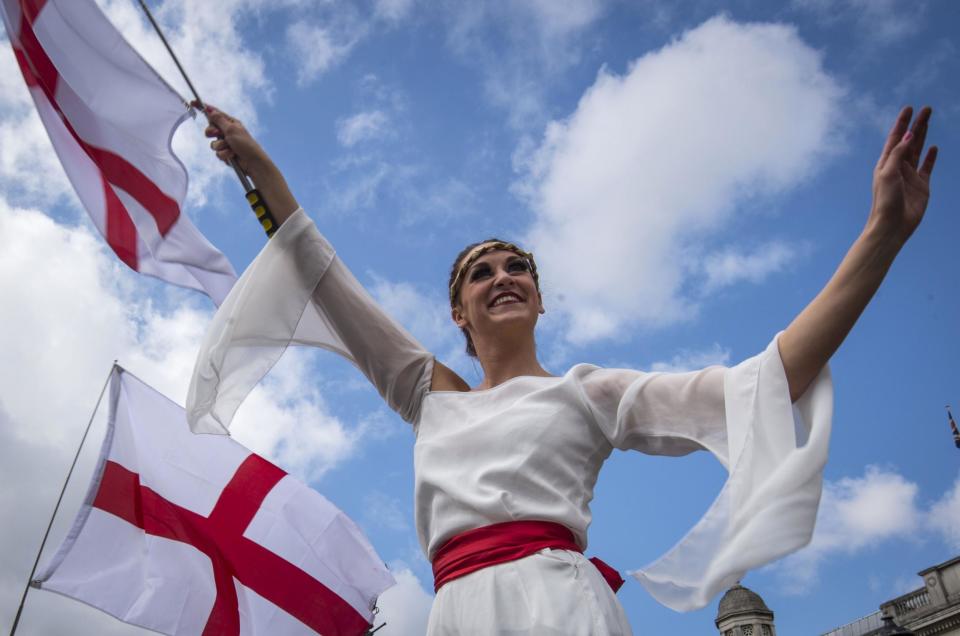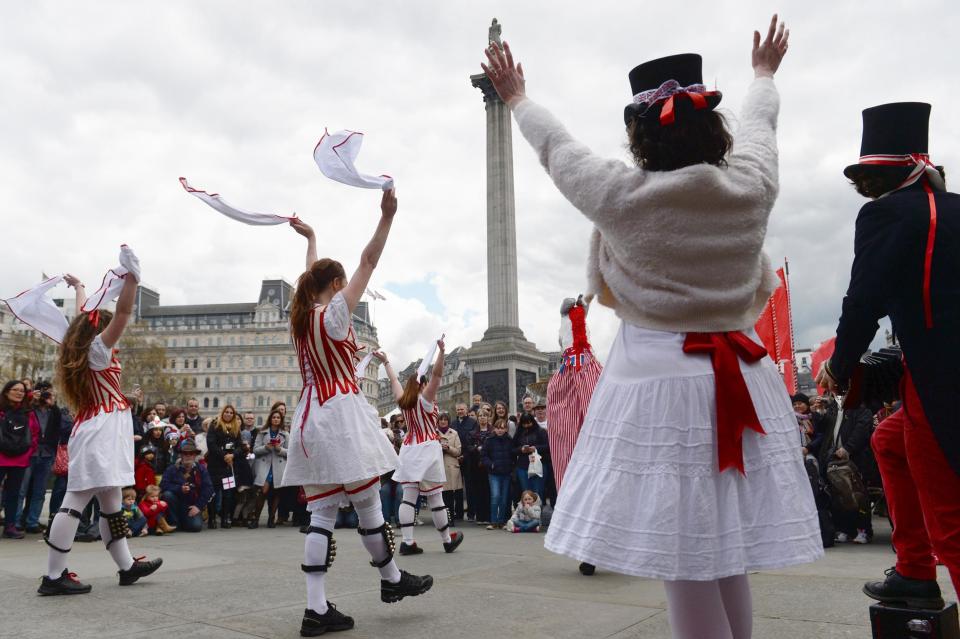St George's Day 2019: Who was England's patron saint?
Just when you thought the festivities were over after the Easter weekend, we have St George's Day to look forward to.
The national day is acknowledged by many Christian churches and is dedicated to St George, the patron saint of England.
This springtime celebration is the perfect opportunity for us to revel in all things English, and we all know this means more than afternoon tea, Morris dancing and the Royal Family.
Despite the fact that we're not granted a Bank Holiday, nothing's stopping you from heading out in the evening to toast England's patron saint.
So here's everything you need to know about St George's Day.

When is St George's Day?
Hold off on the flag-waving - St George's Day is being postponed this year.
After a great deal of confusion over the dates, the Church of England confirmed that the feast of St George would be pushed back to next Monday, April 29.
This alters the usual date of St George's Day, which is typically commemorated on 23 April.
According to church rules, no feast days should be marked during the Easter week. If a saint's day falls during this period, then it is "translated" to the following week.
Matthew Salisbury, the Church of England's national liturgy and worship adviser, said: "St George's Day is translated to April 29 as nothing other than a principal feast would take place during Easter week."
Westminster Abbey also confirmed they would be celebrating on April 29.
Many pre-planned St George's Day events will now be held prematurely, including London's Feast of St George in Trafalgar Square, which ran on Saturday, April 20.
What is St George's Day?
St George's Day is a Christian feast day commemorating Saint George of Lydda, who was executed by the Romans on April 23 more than 1,000 years ago.
According to legend, St George was born in Cappadocia, in what is now modern day Turkey. He was a soldier in the Roman army and rose up the ranks to become a member of the Praetorian Guard for the Emperor Diocletian.
However, legend states that St George was tortured and later executed by the Romans for refusing to renounce his Christian faith. He became a martyr for early Christians, who later venerated him as a saint.
Why do we celebrate St George's Day in England?

St George is England's patron saint, although we share him with other places such as Catalonia, Aragon, Bulgaria, Russia and Portugal.
He was widely celebrated as a warrior saint, but it wasn't until 1348 that his position was elevated to that of a patron saint after his supposed intervention at the Battle of Crécy.
In 1415, April 23 then became a major national feast day across England. In 1552 all religious banners were abolished, except for those of St George.
The myth of Saint George became popular in the 13th century when it was published in a book called The Golden Legend.
According to the legend, George slayed a dragon and rescued a princess from being eaten. In their gratitude, the people of the town converted to Christianity.
The anniversary of his execution, on April 23, is now celebrated as England's national day.
Is St George's Day a Bank Holiday? Do we celebrate with parades?
Unfortunately, St George's Day is no longer a public holiday in England, unlike our Scottish (St Andrew's Day) and Irish (St Patrick's Day) cousins.
While it used to be observed much like Christmas, celebrations started to wane in the early 18th century.
However, there are calls for it to become a national holiday and Labour leader Jeremy Corbyn said he would give workers the day off if Labour won the next election.

 Yahoo News
Yahoo News 
